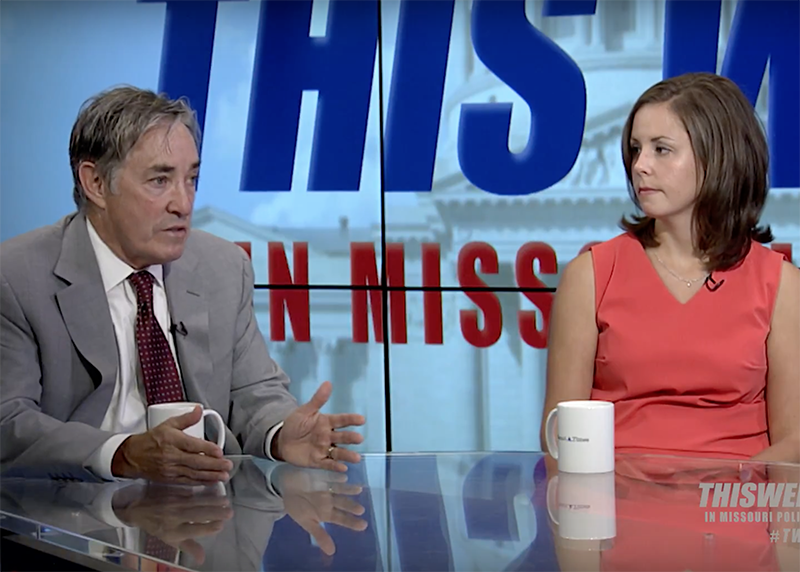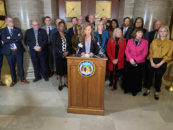JEFFERSON CITY, Mo. – The House special election, which saw Sara Walsh defeat Michela Skelton, signaled a different enthusiasm from Missouri Democrats. Sarah Wood Martin, alderman of St. Louis’ 11th Ward and background operator for Democrats, felt that Skelton’s impressive numbers were because of the influence of Stephen Webber, Chairman of the Missouri Democratic Party.
“We’re seeing the result of Stephen Webber being on the ground. It’s really the first time we’ve had a chairman that is as active, disciplined, and focused… the appetite is there for Democrats to turn some seats, but it has to be the right candidate and they have to be disciplined,” she said Sunday on This Week in Missouri Politics.
Carl Bearden, executive director of United for Missouri, felt that Skelton did well for three reasons. The first was because of Democratic voters in big cities. In November, St. Louis, Kansas City, and Boone County all voted for Hillary Clinton by comfortable margins. The second reason was because he felt majority parties can be complacent.
“When [they’re] in the minority, [they] have a little bit more energy than the majority because you have already caught the car. You just have to figure out what to do with it,” he illustrated. The third was that he felt that blue voters from Boone County accounted for a lot of Skelton’s votes.
Publisher for St. Louis Magazine, Ray Hartmann disagreed. To him, Democrats are being held back because of gerrymandering.

To draw the voting district lines, the General Assembly has to decide how Congressional maps are going to be made and the Governor creates a bipartisan committee which actually does the drawing. As the Executive Director of the Missouri House Campaign Committee, Robert Knodell mentions, in theory, partisan gerrymandering should be impossible.
“They’re drawn by a bipartisan, evenly split commission – which was the case in the Senate last time – or the appellate courts that drew the House maps,” Knodell said.
But, Martin quickly retorted that, in practice, it’s anything but.
“There are deals made and Democrats have to step up and realize how that happens,” she said, shaking her head.
An Associated Press analysis that found that in Colorado, Democrats won a majority, while only accounting for less than half of the average vote. However, it’s Missouri Democrats that are allegedly left out of the deal making. The analysis found that Missouri had the 11th highest discrepancy between statehouse seats and average Republican votes.
In the upcoming months, the United States Supreme Court will hear Gill v. Whitford, which will determine the constitutionality of partisan gerrymandering, which could signal a significant change to not only how the congressional districts are drawn, but potentially how much influence Democrats can have on Missouri politics.
“It will be interesting to watch this redraw and see how it comes out,” Bearden said.
Michael Layer is a reporter for the Missouri Times and the Missouri Times Magazine. He joined the Missouri Times in August 2017 after graduating from Goucher College the previous May. To contact Michael, email michael@themissouritimes.com or follow him on Twitter @_MichaelLayer








